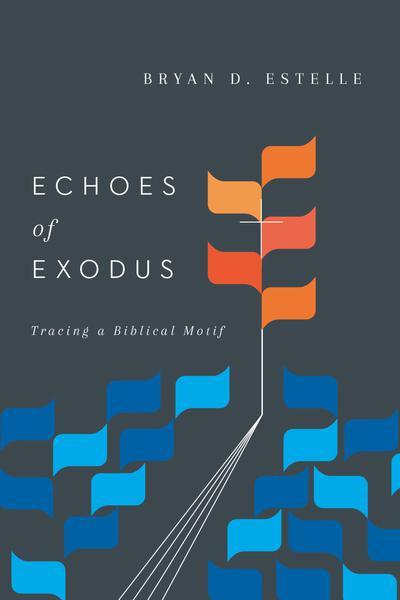
Bryan D. Estelle
Reviewed by: Thomas A. Martin
Echoes of Exodus: Tracing a Biblical Motif, by Bryan D. Estelle. IVP Academic, 2018. Paperback, 392 pages, $32.32 (Amazon). Reviewed by OP pastor Thomas A. Martin.
Read this book and you’ll be drawn back to the Bible with a renewed appreciation of the riches of God’s Word and the fullness of redemption!
“Should you speed-read this book?” the author asks in his introduction (16). His answer is, “Probably not.” That’s a good answer because this is a content-rich book that engages vigorously with current scholarship. It’s an academic book intended to equip preachers and teachers, but serious Bible students will profit from it too as an edifying study to stimulate the intellect and refresh the soul.
Most of the heavy lifting comes early on, so don’t quit at the opening chapter. Here Estelle lays out his hermeneutical methodology, introducing us to the concept of “echo” and locating its roots in the method of classical and Reformed exegetes. This is the most technical part of the book (augmented by a twenty-four-page concluding appendix), but its content is engagingly illustrated by the chapters that follow.
The second chapter establishes from Genesis the covenantal framework within which the exodus event is situated. This is an excellent explication of covenant theology as understood in our confessional standards.
Chapter 3 brings us to the exodus itself. Biblically, this is an event of “epic proportions” (93), which the reader is cautioned against reducing to a mere political liberation. Instead, Estelle notes approvingly the assessment of Geerhardus Vos, “The exodus from Egypt is the Old Testament Redemption” (4). On this basis, he proceeds to demonstrate how the exodus paves the way for a full-orbed understanding of redemption. As a type of redemption, the exodus unites both forensic and participatory aspects of salvation and reverberates throughout the rest of the canon.
Having laid this careful groundwork, Estelle goes on in subsequent chapters to trace the echoes of the exodus event by examining selected passages from both testaments. This is a richly textured and well-developed study. It makes judicious use of the original languages (generally transliterated) in a way that will be appreciated even by those unfamiliar with them. In unfolding his theme, Estelle provides preachers of the Old Testament with a fine case study in hermeneutics, demonstrating how all the Scriptures bear a unified and coherent witness to Christ.
As the subtitle suggests, this study traces a biblical motif—its value is not limited to those with an interest in the Old Testament alone. The later chapters examine how exodus themes emerge in the New Testament, shaping its narrative and overflowing into the soteriology, ecclesiology, and ethics of New Testament believers. Finally, the book rises to a stirring climax in its treatment of the book of Revelation—a feast for the soul and a salutary lesson on how to read and preach the closing book of the canon!
For those still tempted to speed-read, there are helpful summaries at the end of each chapter. The usual indices include a comprehensive Scripture index. A concluding section prompts the reader to reflect on the implications of the study for systematic theology and adds some provocative comments on its implications for prayer and piety that are well worth pondering. Truly, as Estelle says, “much grist for the biblical, theological and ecclesiological mill” (326).
September 07, 2025
August 31, 2025
J. N. Darby and the Roots of Dispensationalism
August 24, 2025
August 17, 2025
Reformed Covenant Theology: A Systematic Introduction
August 10, 2025
August 03, 2025
July 27, 2025
© 2025 The Orthodox Presbyterian Church